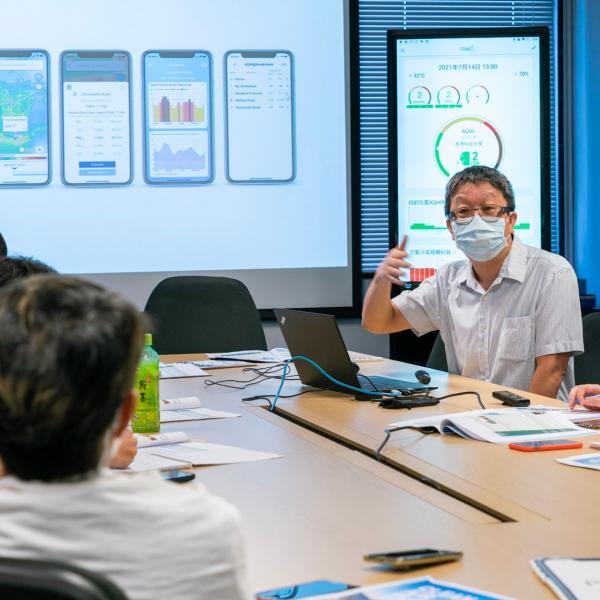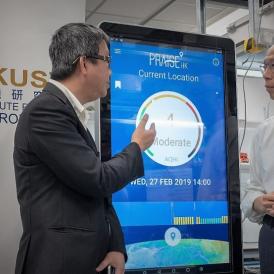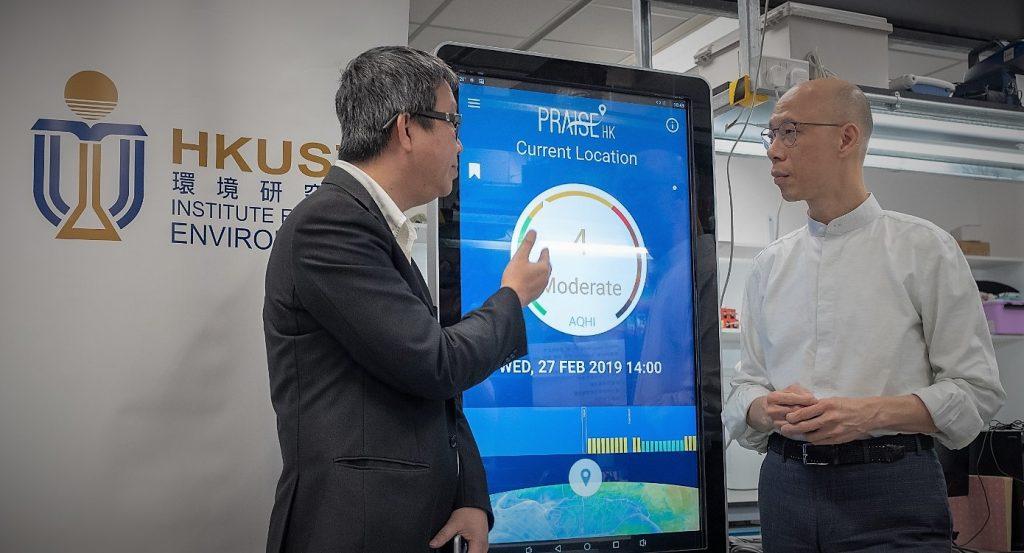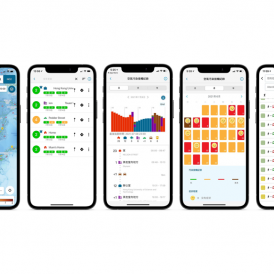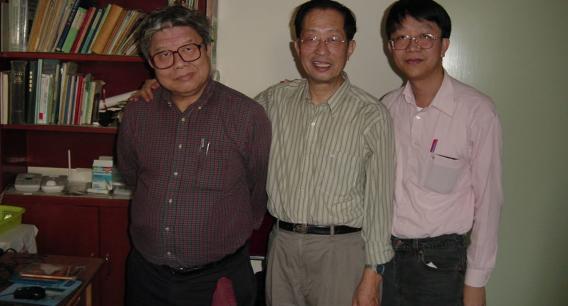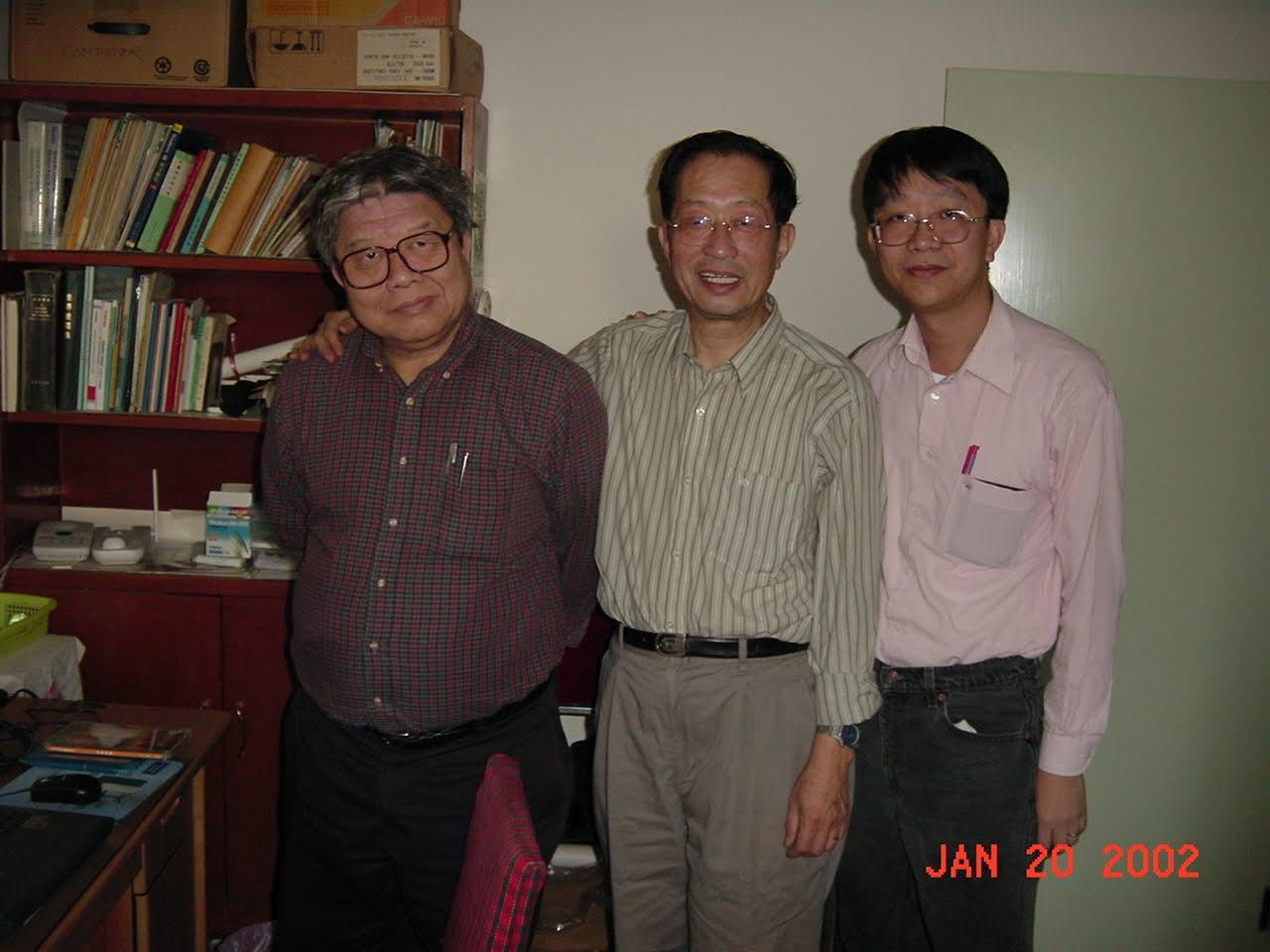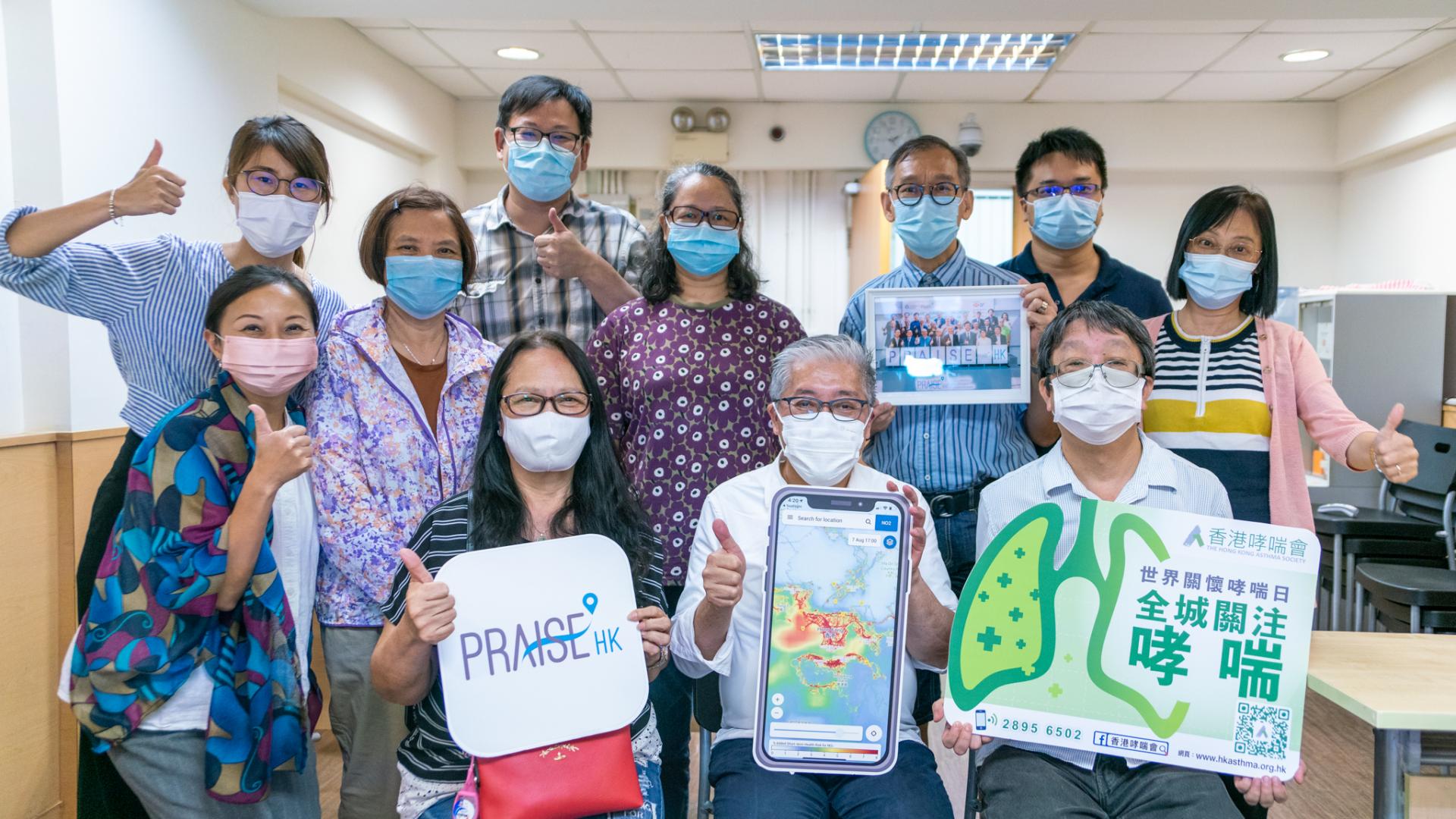Cleaner Air at Your Fingertips
Not only can the pandemic get you grounded, but also air pollution can, too. In Hong Kong, it is not uncommon that the general public — especially children, elderly, and people with heart and respiratory illnesses — is advised to stay indoors as much as they can on a bad, foggy day. While urban air pollution cannot be solved overnight, that does not mean we are armless facing this suffocating enemy.
“When we talk about air pollution, many of us may think that ‘there is not much we can do’, but that is not true,” says Prof. Alexis LAU Kai-Hon, Head and Chair Professor, Division of Environment and Sustainability . Convinced that individuals are not powerless in mitigating the health impacts of air pollution, Prof. Lau and his team have come up with a handy digital solution.
Taking health into your own hands
Built in 2016, PRAISE-HK is an app that provides real-time, location-specific air quality monitoring and forecasts and health risk information to the end users on their smartphones, enabling them to make smarter and healthier life choices.
Think of it as an all-in-one depository for air quality data: Users will not only get to know street-by-street Air Quality Health Index (AQHI) figures, but also how much a specific air pollutant affects their health depending on its concentration, all with just one tap on their phone, for free. With this information at hand, users can choose to stay away from air pollution as much as possible in their everyday life.
“Using the latest big data technologies to fuse real-time sensor measurements with high-resolution weather and air quality modelling systems, the app is world-leading in terms of technological advance and accuracy,” says Prof. Lau, who acts as the principal investigator of PRAISE-HK and leads a team of cross-disciplinary scholars from HKUST and other institutions in the fields of atmospheric science, environmental engineering, computer science, and public health.
The app also takes advantage of the government’s open data made available only in recent years to improve its reliability and accuracy even further. Its broad range of data sources now cover urban land-use and built form, meteorological variables such as wind direction and speed and temperature, air quality measurements, as well as regional and road-side emission and urban traffic statistics, both current and aggregated.
Outperforming existing air quality monitoring apps in Hong Kong, which mainly rely on spatial interpolation on data provided by the nearest monitoring station and often fail to depict variances within individual districts, PRAISE-HK delivers a high resolution of the data with coverage area down to two meters from the user’s location.
Now, the second phase app, PRAISE-HK-EXP — newly launched at the end of November — empowers its users even more in managing their exposure to air pollution throughout the day by tracking and analyzing their personalized exposure budget both outdoor and indoor, and in different micro-environments including various modes of transportation. By showing quantitively how much exposure they can reduce with simple switches in environment settings (e.g. closing windows or turning on air-filters), the app teaches the public what they can do on their own to significantly reduce their exposure during pollution episodes. Using the app’s route planner users can now compare total exposure between different routes and choose the cleanest option.
“In its third and final phase, by acquiring the user’s travel history and self-reported health condition data, we can even provide a personalized analysis of and warning on air pollution’s effects on your everyday life, as well as giving advice about what measures you can take to minimize exposure,” Prof. Lau says.
These are all parts of what the professor says is the app’s mission, as encapsulated in its slogan — “to empower the public with personalized air quality information”.
Raising public awareness
In Prof. Lau’s roadmap of this multi-year project, public empowerment is crucial to its success and higher public engagement in air pollution issues.
“With global warming now catching the world’s attention, we would like to do more to reduce carbon emission in Hong Kong,” Prof. Lau says. “But having people to listen to you with patience is challenging, especially in an era loaded with ephemeral information.”
“If we want individuals to take part, they must first understand what the benefits are. This is what we want PRAISE-HK to achieve: by using less electricity and reducing carbon emission, you will make your street cleaner, and when the streets are cleaner, it becomes much easier for you to plan your daily travel routine.”
To raise public engagement and awareness, the PRAISE-HK team puts particular focus on outreach services, through which they introduce their work to local sensitive groups such as Hong Kong Asthma Society and Hong Kong Allergy Association, as well as organizing school talks and student visits to their laboratory.
While the feedback has been positive since the app’s inception two years ago, Prof. Lau is never the one to value his personal glory over the project’s environmental and public protection benefits.
“PRAISE-HK is recognized by the Hong Kong government’s latest Clean Air Plan as one of the measures that helps residents to find and enjoy cleaner air,” Prof. Lau says. “That is great, but I would hope future partners, or even the government, will adopt and expand our model and develop a similar platform for public consumption eventually. We demonstrated the feasibility of the model and the government can leverage it to better serve the public.”
A lifetime interest inspired by a coincidence
Like many of us, Prof. Lau was not born an air quality enthusiast. As he recalls how a trick of fate led him to step into this new field, it becomes evident that his interest in air quality research develops over time.
In the 1980s, a young Prof. Lau went to the US to expand his horizons, chalking up a career where he saw himself teaching in a classroom in Hong Kong soon. But as life takes unexpected turns, the detour abroad took a full decade, where he completed his MA in Physics at the University of British Columbia, then a PhD in Meteorology in Princeton, before taking a research post at the University of Washington. It is his longing for Hong Kong, which he called home, eventually navigated him back.
“The year was 1994. I was sent to a World Meteorological Organization (WMO) conference in Indonesia, and decided to take a stopover at Hong Kong to visit my family,” Prof. Lau recalls. “I was introduced to Prof. Jay CHEN who was looking for a meteorologist to conduct turbulence prediction for an HKUST research project at the new airport in Chek Lap Kok. What an opportunity it was! I signed up immediately and joined the University.”
“Looking back, starting air quality research was a pure coincidence for me,” Prof. Lau says with a smile, adding that it all began with offering help to a colleague at HKUST on another project about the influence of weather conditions on urban air quality.
In the next two decades, Prof. Lau was intrigued by the intertwining connection between meteorology and urban air pollution and took part in multiple projects and research, from constructing the now-adopted-by-government AQHI to the now-in-vogue field of global warming and climate change.
Educating a greener generation
In recent years, growing in tandem with PRAISE-HK and other air quality research projects is the team’s commitment to devising innovative and blended learning for the younger generation. Their efforts have materialized in the form of new undergraduate programs, such as a BSc in Environmental Management and Technology and the city’s first BSc in Sustainable and Green Finance , scheduled to launch in September 2022.
“We do not want our students to only focus on the environmental side of the argument on why we should go green. To be able to implement changes in Hong Kong as a major metropolis and financial centre, students would also need to grasp how businesses are run and understand their concerns,” Prof. Lau notes.
As HKUST celebrates its 30th anniversary, Prof. Lau’s presence is a reminder that excellence is not defined by moments, but longevity and perseverance in doing what interests us most.
“I got to work with a stellar, excellent group of individuals, complementing one another with different skill sets. The experience has enabled our team to achieve what we have achieved today. When all is said and done, I would probably tell myself, I do not even remember how I started here. But every moment of the 30 years was well spent indeed.”

